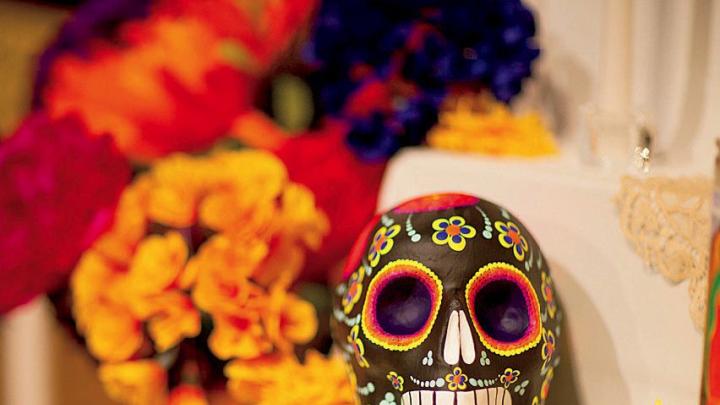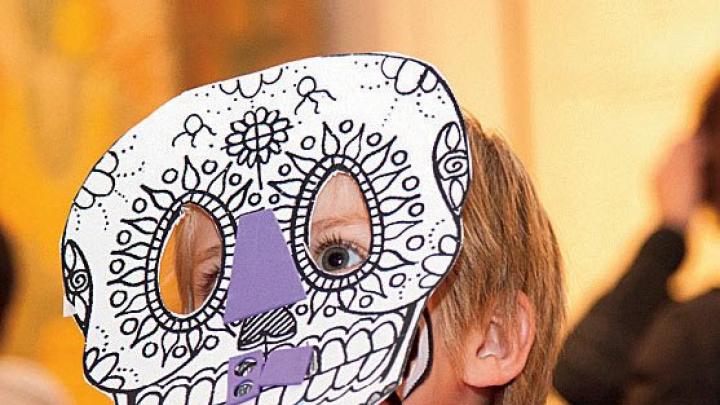Día de los Muertos (Day of the Dead)—when families and friends remember and commune with their lost loved ones—is an annual spiritual celebration in Mexico and parts of Latin America. The concept originated with the Aztecs and now combines aspects of Mesoamerican beliefs and rituals with Catholic traditions, especially those enacted on All Saints’ Day. The Peabody Museum of Archaeology & Ethnology highlights the holiday on November 1 with its own Día de los Muertos family event featuring Mexican folk dances, live mariachi music, sugar-skull decorating, and traditional snacks like pan de muerto (bread of the dead).
Traditionally, the holiday is marked by visits to cemeteries to decorate graves and sometimes to sing, play music, and dance. In homes, families adorn altars with photographs of the deceased as well as with the objects and foods they loved, flowers, incense and candles, and religious imagery. The Peabody has its own permanent altar that holds items from the Melvin collection of Mexican folk art; visitors on November 1 may contribute to a separate communal altar that will remain on display for one month.








